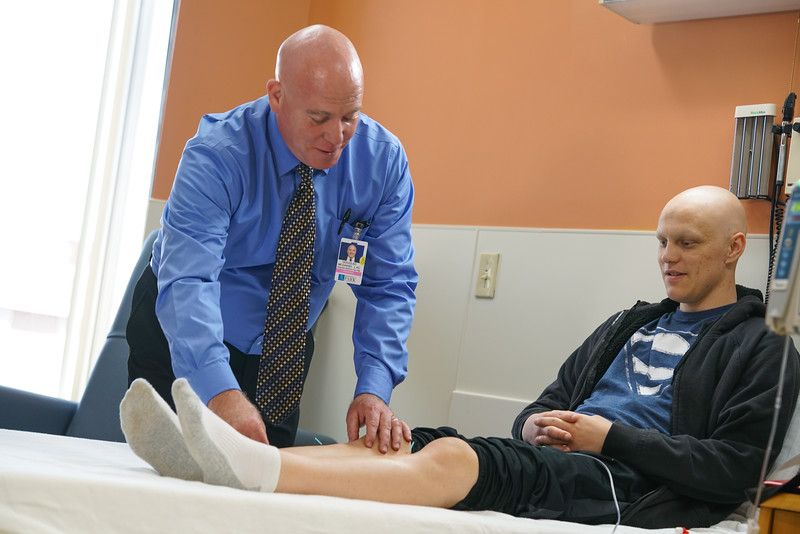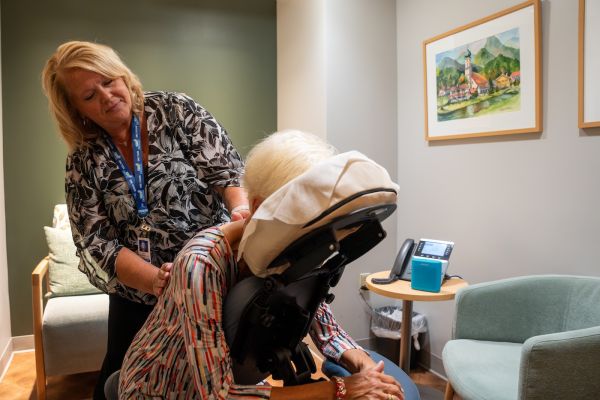Recently, Roswell Park Comprehensive Cancer Center started an integrative medicine pilot program for pediatric and young adult patients with the hope of easing the side effects of their cancer treatments.
The program includes therapies such as acupuncture, acupressure, aromatherapy, reflexology and Reiki. Many of these therapies focus a patient’s “Qi,” an energy that can be moved through pathways along the body to help reduce the side effects of treatment.
This may not sound like something that belongs in a hospital, and in the past, you may have heard these therapies labeled as “alternative medicine.” But in recent years, cancer centers have started embracing and integrating these healing practices into their cancer care.
The important difference between alternative and integrative medicine is that cancer centers like Roswell Park do not claim that these therapies will cure a patient’s cancer. “Chemotherapy, radiation and surgery are going to cure your cancer,” says Doug McDaniel, L.Ac. (formally of Roswell Park). Integrative therapies can help with symptom management and general supportive care, such as easing nausea, joint pain, and improving sleep and appetite. “I like to say, I’m the one that keeps you strong and healthy while you’re going through your treatment.”
“If we really look at what “alternative medicine” means, it’s treating a disease with therapies like acupuncture or acupressure instead of conventional treatments like chemotherapy or surgery. What I do, is an integrative approach,” says McDaniel.
Through the integrative medicine program, McDaniel is able to work in unison with the patient’s primary oncologist to come up with a supportive care plan that best suits each patient. “The therapies that I practice here are modalities that have evidence to support that they are safe for the patient and help treat certain side effects, reduce unwanted symptoms and support the efficacy of their treatments,” says McDaniel.
Never miss another Cancer Talk blog!
Sign up to receive our monthly Cancer Talk e-newsletter.
Sign up!Of course, with the Internet, it’s easy to find stories about people whose cancer went into remission without the help of conventional cancer treatment. To that McDaniel says: “Miracles happen.”
“Everyone's heard a miracle story, and there might be someone out there who changed their diet, exercised, meditated all day long, received acupuncture and maybe their cancer went into remission. That’s great, but that’s not the norm. The data does not support that and if that were true, everyone would be doing it,” says McDaniel.
When approached by patients looking for alternatives to avoid conventional cancer treatments, McDaniel explains how an integrative approach can help their symptoms while still getting the cancer treatments they need.
“It comes up frequently, and I tell patients that you can't avoid the conventional treatments. I think what people fear is not only having a disease that is making them not feel well, but the side effects of the treatment making them feel worse,” says McDaniel. “I explain to the patient that the conventional treatment is necessary because it’s what’s been proven to cure cancer, but we can add integrative modalities into the mix that will help reduce those negative side effects and keep them strong, healthy and able to stay on course with their cancer treatment.”

